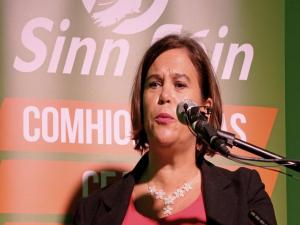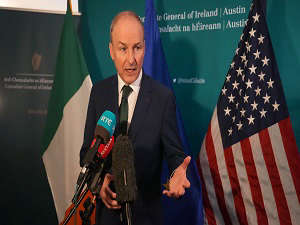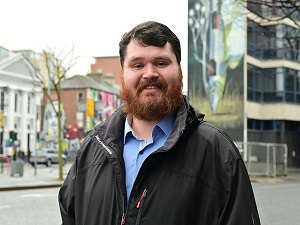
By Aine McMahon and Michael McHugh, PA
Counting of the votes of Fianna Fail, Fine Gael and Green Party members is under way as the parties decide whether or not to endorse the programme for government deal in Ireland.
The count results from all three parties are expected to be announced at around 6pm on Friday evening.
It has been 134 days since Ireland's inconclusive general election.
Fianna Fail, Fine Gael and the minority Green Party are attempting to secure grassroots backing for a proposed administration promising radical action on climate change.
The two larger parties need the support of the Greens to have a working majority in the Irish parliament, equating to around 80 seats.
All eyes are on the Green Party as some members have indicated they will vote against the agreement, citing concerns about emissions and housing targets.
It needs the approval of two thirds of its 2,000 members as opposed to a simple majority for Fianna Fail and Fine Gael.
If the programme is endorsed, it would see Fianna Fail leader Micheal Martin, whose party has the most seats, become the next Irish premier.
Outgoing premier Leo Varadkar said on Thursday night that he believed the deal would get over the line.
He said: "My view is the three parties will vote to go into coalition with each other and that the yes vote will be larger than people expect and that we will have a new government on Saturday."
Any administration will face an uphill task to restore an economy steered into recession by the coronavirus pandemic and government formation talks have been delayed by the emergency.
Sinn Fein won the popular vote in last winter's general election in what its leader termed a "revolution in the ballot box".
A shortage of candidates on the ballot paper in the proportional representation vote meant its 37 seats trailed those of rivals in Dublin's Dail parliament.
Attempts by party president Mary Lou McDonald to secure a coalition of the left have floundered.
Sinn Fein enjoyed a surge in support from young people discontented over lack of affordable housing.
The party's historic links to the IRA have always hampered its progress among older voters and coloured the decision of Fianna Fail and Fine Gael not to enter government with them.
Those two parties have for decades swapped power between them during change elections and harbour constitutional divisions dating back to the civil war a century ago.
Following months of negotiations, their leaders agreed to enter coalition together in an historic shift.
It would promote a clear ideological divide on the economy with an opposition dominated by left-wing voices, of which Sinn Fein's would carry the strongest mandate.
Laws enabling the non-jury Special Criminal Court to continue trying suspected gangland criminals and dissident republicans could lapse at the end of this month should the deal to form a government be rejected.
Another general election is also a possibility.


 Additional public transport announced ahead of Open golf event at Royal Portrush
Additional public transport announced ahead of Open golf event at Royal Portrush
 Man who forced vulnerable women into prostitution given seven-year sentence
Man who forced vulnerable women into prostitution given seven-year sentence
 Taoiseach announces further one billion euro for Shared Island Fund
Taoiseach announces further one billion euro for Shared Island Fund
 Details of two Troubles archive projects announced by Government
Details of two Troubles archive projects announced by Government
 Religious discrimination case against Belfast hotel settled for £10,000
Religious discrimination case against Belfast hotel settled for £10,000